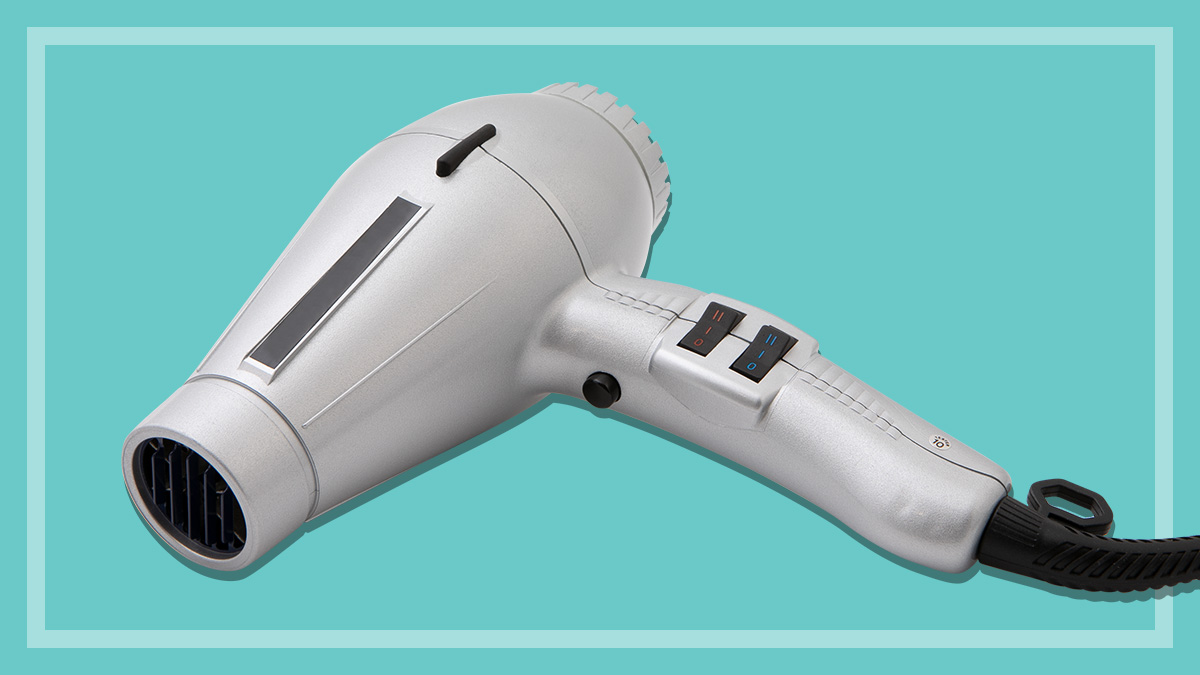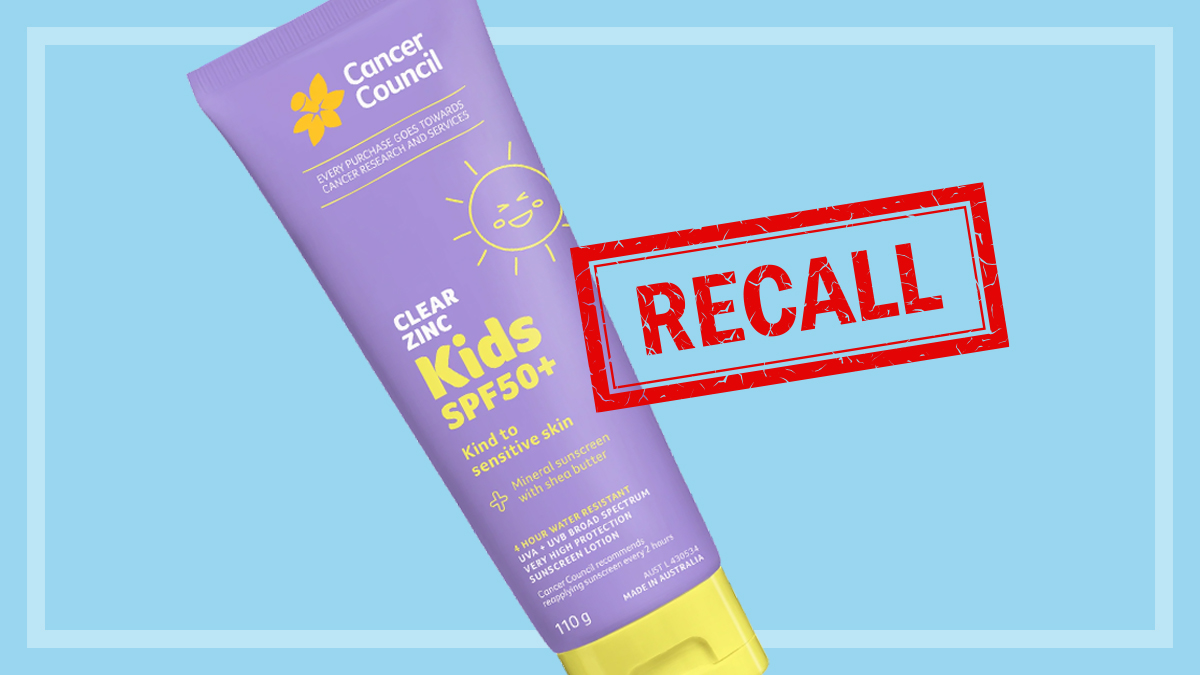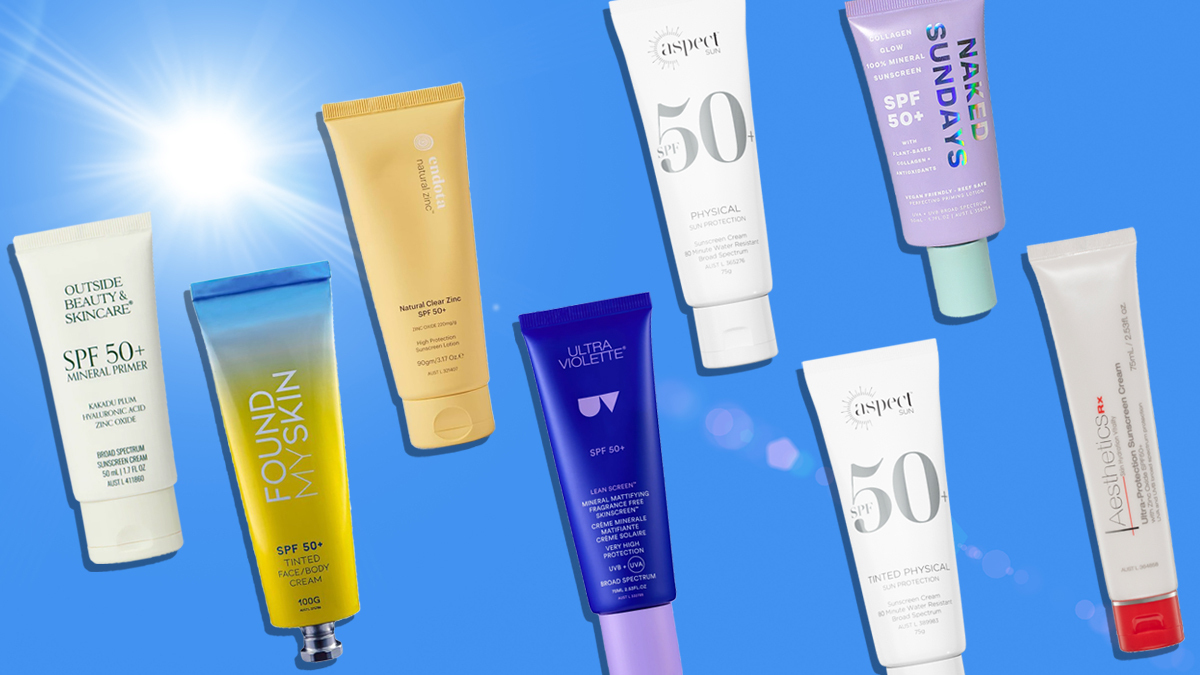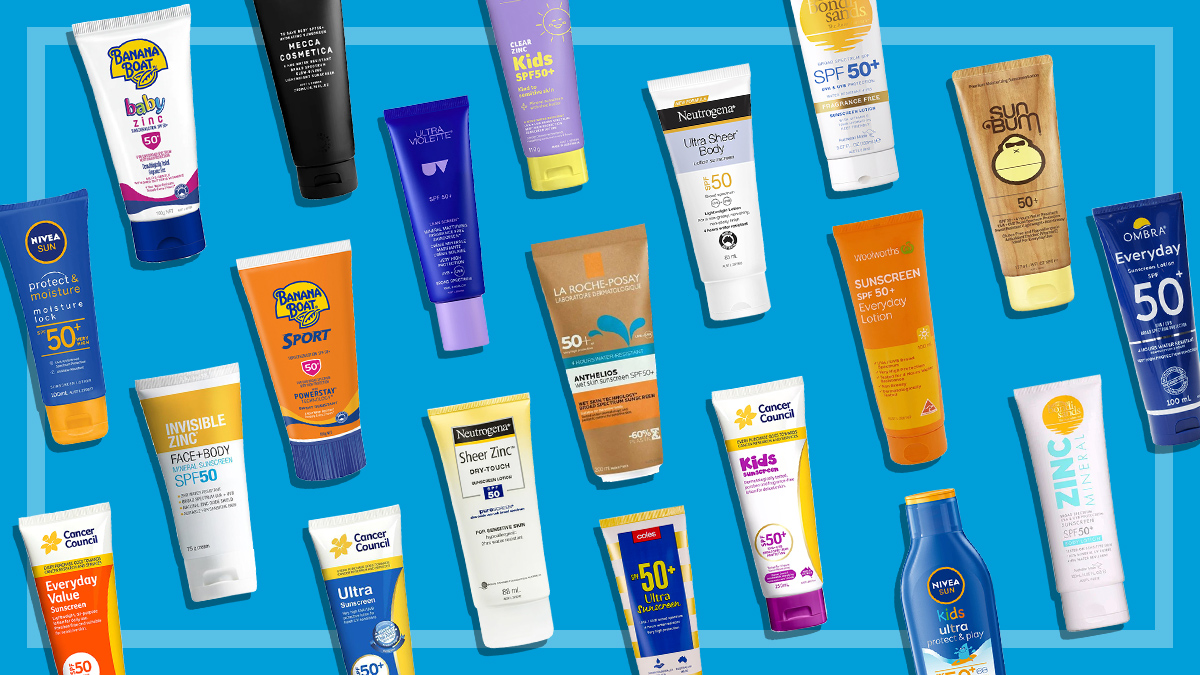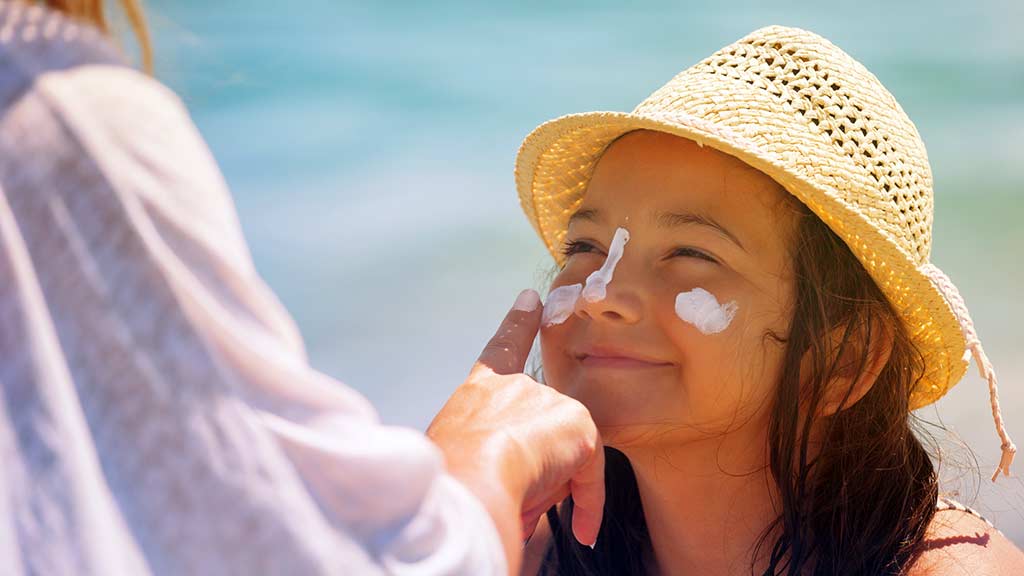Get our independent lab tests, expert reviews and honest advice.
Face sunscreens and SPF moisturisers review
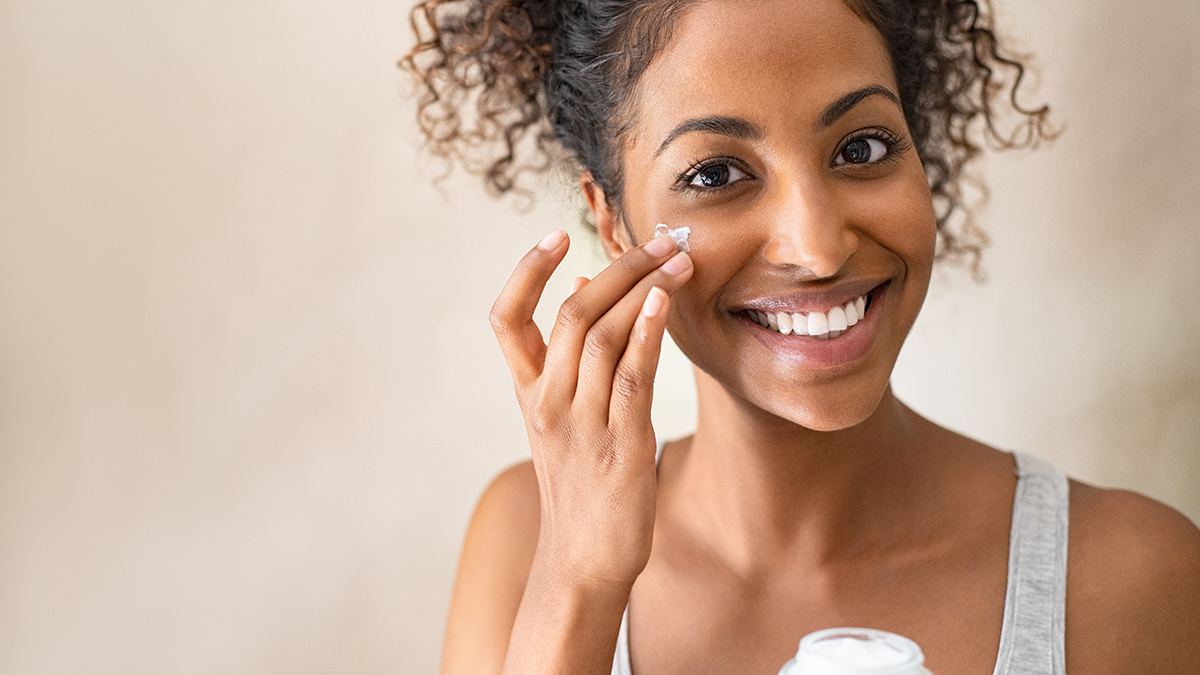
In 2017, we put a range of SPF 30 and 50+ face sunscreens and moisturisers to the test.
On this page:
- What we found
- The ones we liked best
- Face sunscreen vs SPF moisturiser
- The importance of wearing sunscreen
- How we test
We trialled 14 widely available products, bookended price-wise by a cheapie from Coles ($6 for 100mL) and a Shiseido face sunscreen ($62 for 50mL).
We gave each trialist six different products in plain packaging so they didn’t know the brand or the price. They were asked to rate texture and consistency, smell, feel, ease of application, how moisturising it felt, their overall impression, and how likely they’d be to buy it.
Note: This 2017 user trial did not test the SPF of face sunscreens and moisturisers. For our latest SPF testing, see the CHOICE 2025 sunscreen test.

What we found
The five products we liked best came out on top based on their overall impression, their moisturising ability and people’s interest in buying them.
Price is no indicator of preference
The cheapest product, Coles Face Sunscreen, was rated equal best. Suitable for sensitive skin, this product would suit all the family as an everyday face sunscreen.
The Olay Regenerist Micro-Sculpting UV cream was the second most expensive on test, with a recommended retail price of $48.99. However, as with most products we tested, you’ll likely find it a lot cheaper from discount pharmacies and on special in supermarkets – we paid less than $30.
The most expensive product (Shiseido) also rated quite well, and while some people loved it, it didn’t do as well overall as our top-rated products.
SPF 30 products tended to rate better than 50+
Though the Cancer Council Face Day Wear Matte Sunscreen with SPF 50+ is one of our best-liked products – and equal best moisturiser – while Banana Boat EveryDay Faces is worth considering. The 50+ products that didn’t rate as well were considered more sunscreen-like in smell, texture and feel.
While we expected moisturisers with added sunscreen – being more ‘cosmeticky’ – would rate better than the sunscreens, there actually wasn’t much difference, and the products we liked best include two positioned as sunscreens.
Overall
With a mix of cheap, expensive, sensitive-skin and high-SPF products in our list, there’s something for everyone. But the best-rated products didn’t suit all triallists, and even the lowest-rated products were loved by some, so you may need to try more than one to find a product that suits you.
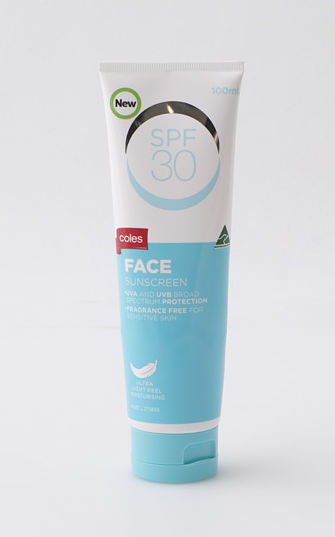
The ones we liked best
Coles Face Sunscreen (SPF 30)
- Price: $6.00 for 100mL
- Total score (out of 15): 12
- Number who would buy: 9/14
- Good to know: Equal best score and highest buy score
- Triallist comment: “It felt luxurious.”
Brand/product: Coles Face Sunscreen
SPF: 30
RRP: $6.00
Size: 100mL
Cost per 50mL or 50g: $3.00
Total score (out of 15): 12
Overall impression score: 4/5
Moisturiser score: 4/5
Buy score: 4/5
Number who would buy: 9/14
Triallist impressions: Easily absorbed, light, nice texture, mild scent, quite moisturising; Some thought it wasn’t moisturising enough.
Sensitive: Yes
Non-comedogenic: No.
Active ingredients: Octocrylene, butyl methoxydibenzoylmethane, octyltriazine, 4-methylbenzylidene camphor
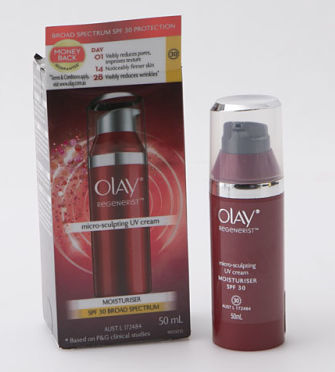
Olay Regenerist Micro-sculpting UV cream (SPF 30)
- Price: $48.99 for 50mL
- Total score (out of 15): 12
- Number who would buy: 7/15
- Good to know: Equal best total score, highest overall score and equal best moisturising score.
- Triallist comment: “Smelt great, was easy to apply, and left my skin moisturised all day.”
Brand/product: Olay Regenerist Micro-Sculpting UV Cream
SPF: 30
RRP ($): 48.99
Size (mL or g): 50
Cost per 50mL or 50g ($): 48.99
Total score (out of 15): 12
Overall impression score: 4.5/5
Moisturiser score: 4/5
Buy score: 3.5/5
Number who would buy: 7/15
Triallist impressions: Smooth, silky, easy to apply, most liked the fragrance; A bit too heavy or oily for some, and some didn’t like the fragrance.
Sensitive: No
Non-comedogenic: No
Active ingredients: Homosalate, butyl methoxydibenzoylmethane, octocrylene, phenylbenzimidazole sulphonic acid
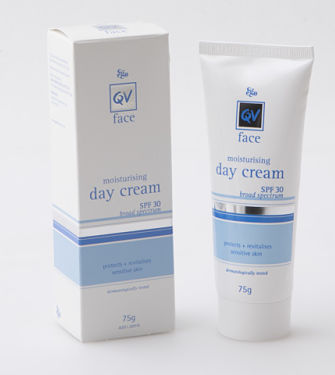
QV Face Moisturising Day Sunscreen (SPF 30)
- Price: $16.60 for 75g
- Total score (out of 15): 12
- Number who would buy: 9/15
- Good to know: Equal best total score
- Triallist comment: “Nice texture and relatively fragrance-free, did a reasonable job of moisturising.”
Brand/product: QV Face Moisturising Day Cream
SPF: 30
RRP ($): 16.60
Size (mL or g): 75
Cost per 50mL or 50g ($): 11.07
Total score (out of 15): 12
Overall impression score: 4/5
Moisturiser score: 4/5
Buy score: 4/5
Number who would buy: 9/15
Triallist impressions: Nice consistency, easy to apply, no bad smell, skin looked fresh and dewy; Didn’t like the shiny, oily look.
Sensitive: Yes
Non-comedogenic: Yes
Active ingredients: Bemotrizinol, methylene bis-benzotriazolyl tetramethylbutylphenol
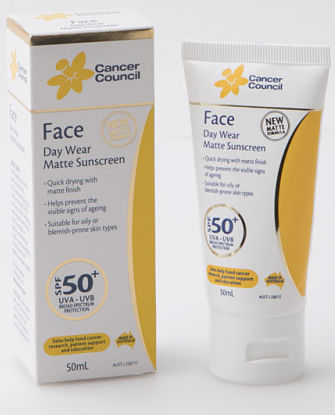
Cancer Council Face Day Wear Matte Sunscreen (SPF 50+)
- Price: $14.95 for 50mL
- Total score (out of 15): 11
- Number who would buy: 7/15
- Good to know: Equal best moisturising score, best 50+ product
- Triallist comment: “Felt good on my skin, was easy to apply and worked all day.”
Brand/product: Cancer Council Face Day Wear Matte Sunscreen
SPF: 50+
RRP ($): 14.95
Size (mL or g): 50
Cost per 50mL or 50g ($): 14.95
Total score (out of 15): 11
Overall impression score: 4/5
Moisturiser score: 4/5
Buy score: 3/5
Number who would buy: 7/15
Triallist impressions: Silky, smooth, light, no smell, easy to apply; A bit oily and a little sticky.
Sensitive: Yes
Non-comedogenic: No.
Active ingredients: Octocrylene, butyl methoxydibenzoylmethane, homosalate, octyl salicylate, octyl triazone
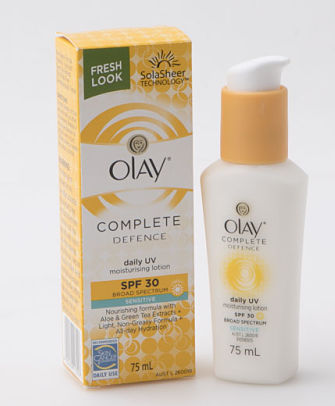
Olay Complete Defence Sensitive (SPF 30)
- Price: $9.99 per 50mL
- Total score (out of 15): 11
- Number who would buy: 6/14
- Triallist comment: “Nice on skin, makeup works well with it.”
Brand/product: Olay Complete Defence Daily UV Moisturising Lotion (Sensitive)
SPF: 30
RRP ($): 14.99
Size (mL or g): 75
Cost per 50mL or 50g ($): 9.99
Total score (out of 15): 11
Overall impression score: 4/5
Moisturiser score: 4/5
Buy score: 3/5
Number who would buy: 6/14
Triallist impressions: Nice texture, sinks in, good moisturiser for some; Didn’t have great smell, felt a bit dry for some.
Sensitive: Yes
Non-comedogenic: No.
Active ingredients: Octyl methoxycinnamate, zinc oxide, octocrylene, octyl salicylate
Worth considering
These products also rated well, and some triallists loved them.
Brand/Product: Nivea Sun Protect & Light Feel Daily Face Veil
SPF: 30
RRP ($): 10.99
Size (mL or g): 50
Cost per 50mL or 50g ($): 10.00
Total score (out of 15): 10.5
Overall impression score: 4/5
Moisturiser score: 3.5/5
Buy score: 3/5
Number who would buy: 5/15
Triallist impressions: Smooth and light, feels good and looks good on skin; A bit runny, some didn’t like the smell.
Sensitive: No
Non-comedogenic: No
Active ingredients: Octyl methoxycinnamate, homosalate, octyl salicylate, butyl methoxydibenzoylmethane, octyl triazone, oxybenzone
Brand/Product: Shiseido Ultimate Sun Protection Cream (SPF 30)
SPF: 30+
RRP ($): 62
Size (mL or g): 50
Cost per 50mL or 50g ($): 62
Total score (out of 15): 10.5
Overall impression score: 4/5
Moisturiser score: 3.5/5
Buy score: 3/5
Number who would buy: 6/16
Triallist impressions: Several people commented they loved it, left skin looking moisturised without being shiny; A bit heavy, smelt and felt like a sunscreen.
Sensitive: No
Non-comedogenic: Yes
Active ingredients: Zinc oxide, octyl methoxycinnamate, titanium dioxide
Brand/Product: Banana Boat EveryDay Faces (SPF 50+)
SPF: 50+
RRP ($): 11.99
Size (mL or g): 100
Cost per 50mL or 50g ($): 6
Total score (out of 15): 10
Overall impression score: 3.5/5
Moisturiser score: 3.5/5
Buy score: 3/5
Number who would buy: 5/16
Triallist impressions: Quite moisturising, nice texture, looked fresh; Sticky, sunscreen smell, not moisturising enough.
Sensitive: No added fragrance
Non-comedogenic: No
Active ingredients: Butyl methoxydibenzoylmethane, 4-methylbenzylidene camphor, octocrylene, bemotrizinol
Brand/Product: Nivea Daily Essentials Light Moisturising Day Cream
SPF: 30+
RRP ($): 12.99
Size (mL or g): 50
Cost per 50mL or 50g ($): 12.99
Total score (out of 15): 9.5
Overall impression score: 3.5/5
Moisturiser score: 4/5
Buy score: 2/5
Number who would buy: 3/14
Triallist impressions: Goes on smoothly, good moisturiser; Felt sticky and oily, deteriorated over the day.
Sensitive: No
Non-comedogenic: No
Active ingredients: Homosalate, octyl salicylate, octocrylene, butyl methoxydibenzoylmethane, phenylbenzimidazole sulphonic acid
How the rest performed
Brand/Product: Ego SunSense Moisturising Face
SPF: 50+
RRP ($): 13.95
Size (mL or g): 100
Cost per 50mL or 50g ($): 6.98
Total score (out of 15): 7.5
Overall impression score: 3/5
Moisturiser score: 2.5/5
Buy score: 2/5
Number who would buy: 4/16
Triallist impressions: Thin and light, went on easily and had a nice feel; Quite drying, not moisturising enough, makeup didn’t stay on, some didn’t like smell.
Sensitive: No added fragrance
Non-comedogenic: Yes
Active ingredients: Bemotrizinol, methylene bis-benzotriazolyl tetramethylbutylphenol, octyl salicylate
Brand/Product: La Roche-Posay Anthelios XL Comfort
SPF: 50+
RRP ($): 28.99
Size (mL or g): 50
Cost per 50mL or 50g ($): 28.99
Total score (out of 15): 7.5
Overall impression score: 2.5/5
Moisturiser score: 3/5
Buy score: 2/5
Number who would buy: 3/15
Triallist impressions: Would be OK as a sunscreen; Sticky, made face shiny, didn’t like the smell.
Sensitive: Yes
Non-comedogenic: Yes
Active ingredients: Bemotrizinol, octyl triazone, drometrizole trisiloxane, butyl methoxydibenzoylmethane, titanium dioxide, ecamsule
Brand/Product: Neutrogena Ultra Sheer Fluid Facial Sunscreen
SPF: 50
RRP ($): 19.99
Size (mL or g): 40
Cost per 50mL or 50g ($): 24.99
Total score (out of 15): 7.5
Overall impression score: 2.5/5
Moisturiser score: 2/5
Buy score: 2/5
Number who would buy: 4/16
Triallist impressions: Light, feels nice, skin looked glowing; Drying, oily, stings eyes.
Sensitive: No
Non-comedogenic: Yes
Active ingredients: Butyl methoxydibenzoylmethane, homosalate, octyl salicylate, octocrylene, oxybenzone
Brand/Product: Invisible Zinc Facial Moisturiser
SPF: 30
RRP ($): 35
Size (mL or g): 50
Cost per 50mL or 50g ($): 35
Total score (out of 15): 7
Overall impression score: 2.5/5
Moisturiser score: 2.5/5
Buy score: 2/5
Number who would buy: 3/13
Triallist impressions: Felt thick and protective; Too thick, made skin white, too sticky, not moisturising enough.
Sensitive: Yes
Non-comedogenic: No
Active ingredients: Zinc oxide
Brand/Product: Neutrogena Sheer Zinc Face Dry Touch Sunscreen
SPF: 50
RRP ($): 20
Size (mL or g): 59
Cost per 50mL or 50g ($): 16.95
Total score (out of 15): 5
Overall impression score: 1.5/5
Moisturiser score: 2.5/5
Buy score: 1/5
Number who would buy: 1/14
Triallist impressions: Performed well as a sunscreen, stayed on despite sweat; Very thick and sticky, difficult to apply, made skin white, smells like sunscreen.
Sensitive: Yes
Non-comedogenic: Yes
Active ingredients: Zinc oxide
Face sunscreen vs SPF moisturiser
There are many products designed specifically to provide sun protection for the face that aim to avoid the heavy, sticky feeling of body sunscreens. They include face sunscreens, many of which also claim to moisturise your skin, as well as moisturisers with added sunscreens.
What’s the difference? It can be hard to tell, but where you find them on the pharmacy or supermarket shelves is one indication, while the prominence given to each on the label is another.
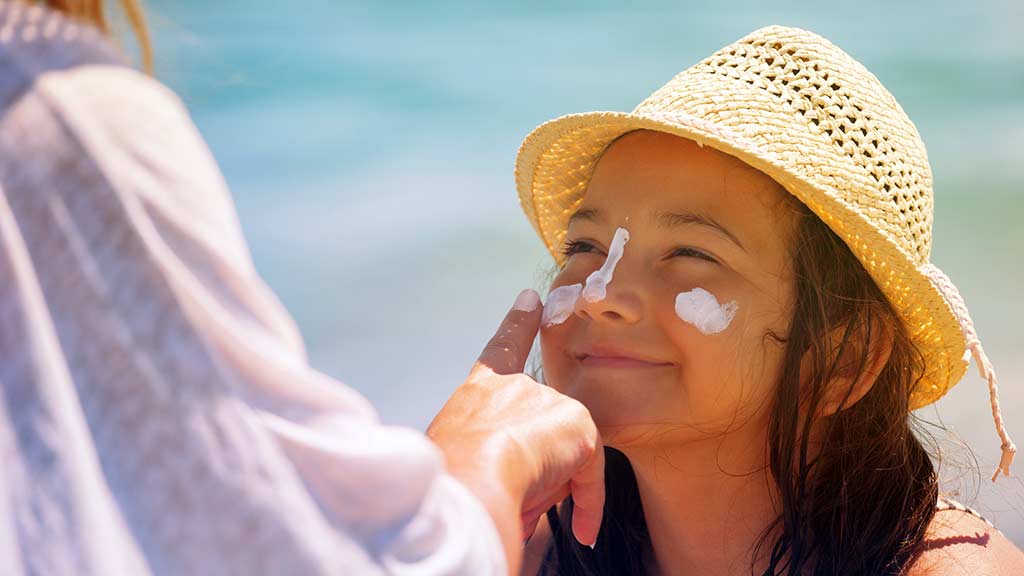
The importance of wearing sunscreen
Associate Professor Chris Baker from the Australasian College of Dermatologists says dermatologists regularly treat skin cancers that could have been easily prevented through proper sun protection.
“Dermatologists see a lot of skin cancers on the face, ears, head and neck,” says Baker.
“These skin cancers are particularly concerning because they can arise quickly and are more difficult to treat. Surgery is the most common treatment, with visible scarring often unavoidable.
“Other treatments include topical therapy for some early skin cancers through to radiotherapy and chemotherapy for more advanced cancers. Sadly we don’t always get them in time.”
How and when to use sunscreen
To gain full protection from sunscreen, you need to use the recommended amount and reapply every two hours in the sun. For face products like those we tested, this means using half a teaspoon for your face only, or a full teaspoon for your face, neck and ears.
The Cancer Council recommends we wear sun protection during the day when the UV index is 3 or above, which for much of Australia means all year round.
And don’t forget a hat, clothing, sunglasses and shade
While sunscreen is a great start for protecting your face from UV damage, it’s only one of several measures you should take.
Cancer Council research shows less than half of Australians use hats to protect themselves from the sun and, as a result, are getting sunburnt on their face, head, nose or ears.
“There can be a tendency from many Australians to slop on some sunscreen and think they are protected all day long,” says Paige Preston, National Skin Cancer Committee Cancer Council Australia.
“But sunscreen isn’t a suit of armour. It should be your last line of defence – a hat, clothing, sunglasses and shade are also key to protecting your skin.”
How we test
How we chose our products
Since most people don’t apply enough sunscreen to achieve the stated SPF, we looked only at products with SPF 30 or higher to maximise the chance of getting adequate protection.
All are broad spectrum – meaning they protect against UVA and UVB radiation – and all have been tested to the Australian standard for sunscreen.
Table notes
Total score (out of 15): Made up of overall impression score, moisturiser score and buy score.
Overall impression (out of 5): Triallists were asked to give each product an overall rating.
Moisturiser score (out of 5): Triallists were asked to rate each product’s moisturising ability.
Buy score (out of 5): Triallists were asked how willing they’d be to buy the product (without knowing the price).
Number who would buy: Number who said they’d probably or definitely buy the product / Total number of triallists.
Non-comedogenic: Claims not to cause blocked pores.

